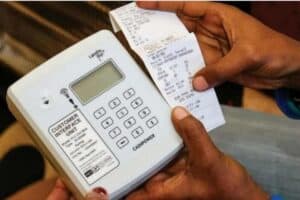The opposition party says some should be dissolved, with others partly or fully privatised.

The Democratic Alliance (DA) has called for a full-scale review of failing and debt-ridden state-owned entities (SOEs), which have cumulative losses amounting to almost R100 billion according to National Treasury’s 2019 Consolidated Financial Statement report.
DA shadow minister of public enterprises Natasha Mazzone said this report was proof the status quo was no longer viable and the SOEs must urgently be completely overhauled.
“Their insurmountable debt poses great risks to our economy and the functioning of society.
“Many of them are bankrupt and completely unable to provide the services they are mandated to deliver. Furthermore, several of these hundreds of SOEs duplicate functions and should not even exist in the first place,” said Mazzone.
She said these public entities raked up a consolidated loss of R50.65 billion in 2016/17 and R45.82 billion in 2017/18.
According to the Treasury report, the profitability of SOEs had declined due to a combination of operational inefficiencies, governance failures and weak demand.
“These factors have increased reliance on borrowing to fund operations, leaving several entities heavily indebted, without sufficient cash to service their debt obligations or even to run their operations.
“Significant risks remain to economic and fiscal projections,” according to the report.
Mazzone said the DA would continue to fight for a comprehensive review to be conducted to evaluate which SOEs were necessary, which needed to be dissolved, which should be partially privatised, and which should be entirely privatised.
“It is time to be pragmatic and to stop playing politics. SOEs represent some of the biggest monopolies in the South African economy.
“By conducting a comprehensive review, government would be providing citizens with a clear indication that they are willing to start the process of structural change to protect our economy from further financial losses,” she said.
Mazzone said being sentimental about SOEs was ill-advised when these enterprises added little to no value to the people of South Africa and the economy. The country is in crisis.
“It, therefore, requires urgent reforms, starting with Eskom,” she said.
In his state of the nation address recently, President Cyril Ramaphosa said government would table a special Appropriation Bill on an urgent basis to allocate a significant portion of the R230 billion bailout needed to save Eskom from falling apart.
This was on top of the R69 billion announced by Minister of Finance Tito Mboweni in his budget speech in February to be allocated to Eskom to help it pay its debts amounting to nearly R500 billion.
However, experts said Eskom needed much more than a bailout because the power utility was rotten.
They added that the problem in presenting a clear country plan for the electricity supply industry was that no current vision had broad support within the party and its alliance partners.
Ramaphosa was also heavily criticised by Business Unity South Africa for failing to present a clear plan of action with time-frames for restructuring Eskom and other SOEs which had negatively affected the economy.
For more news your way, download The Citizen’s app for iOS and Android.






